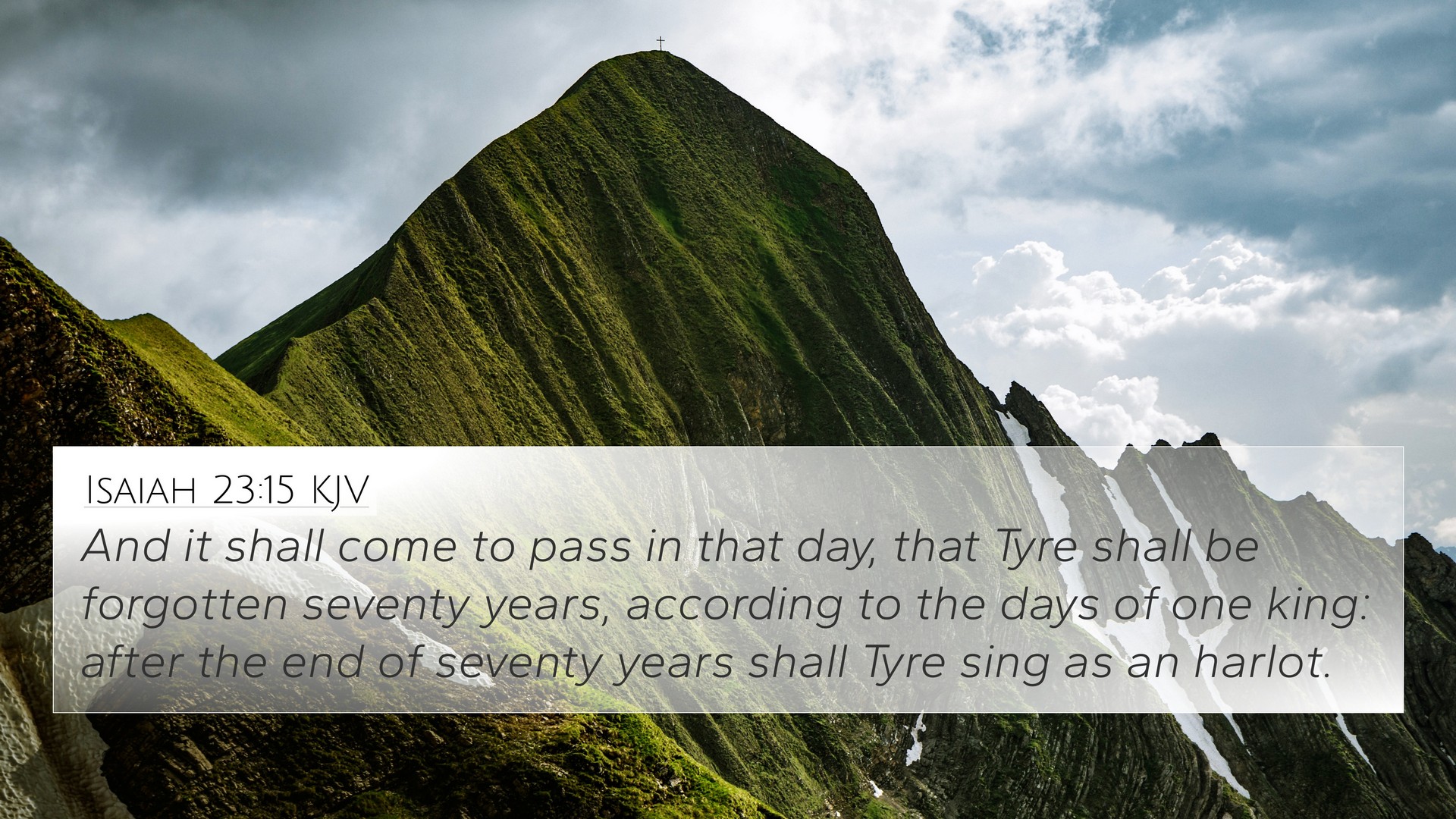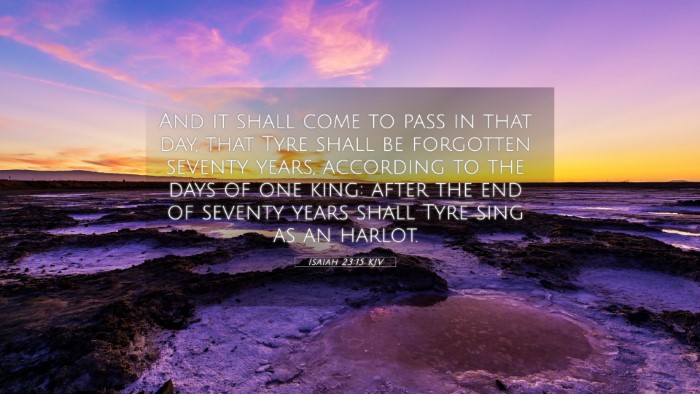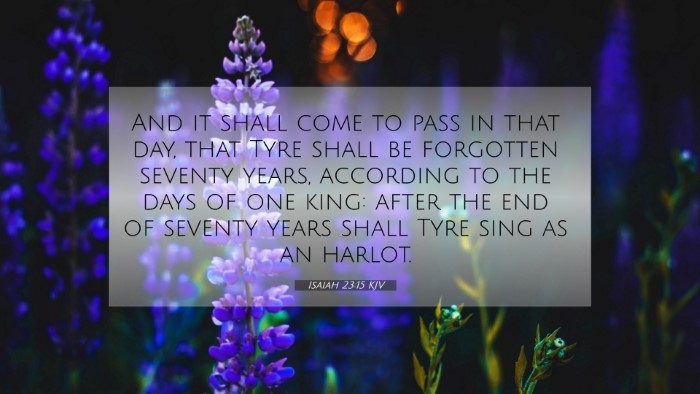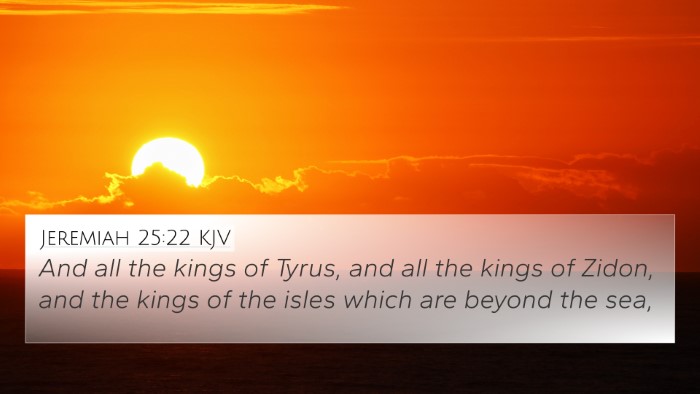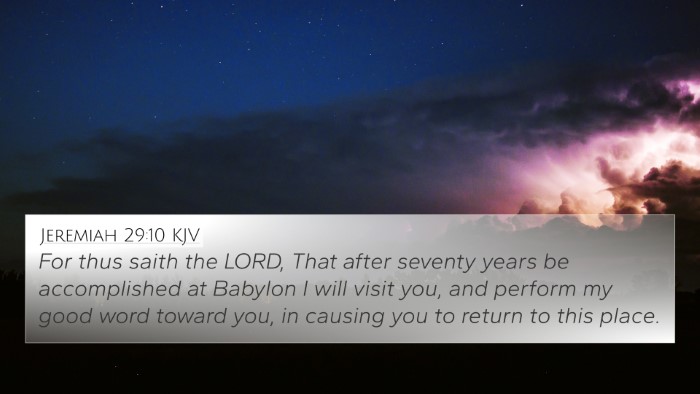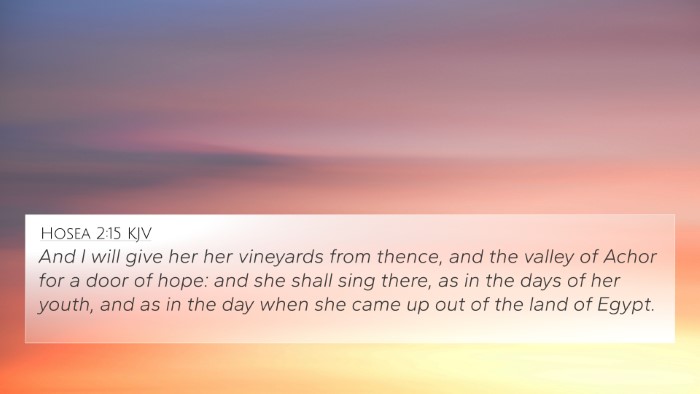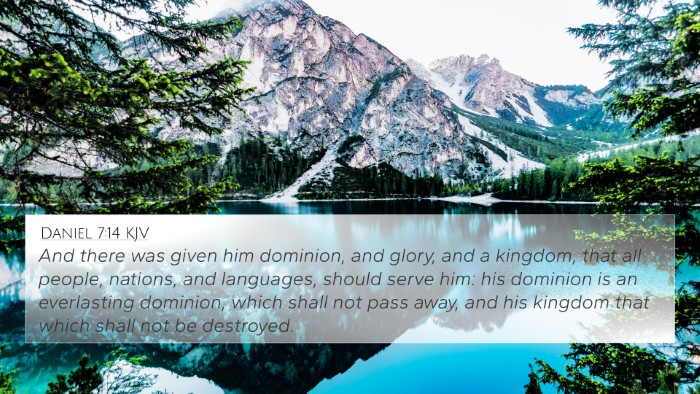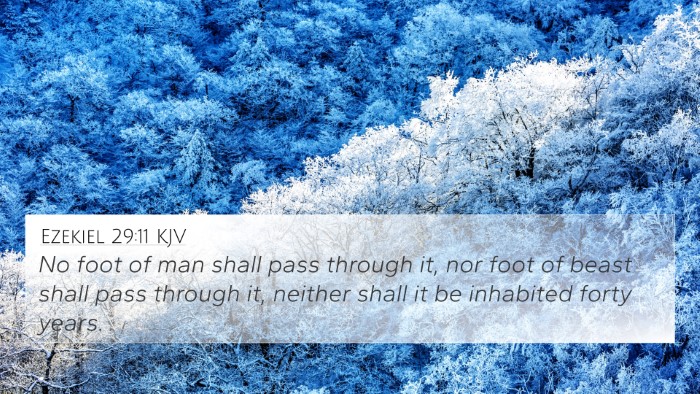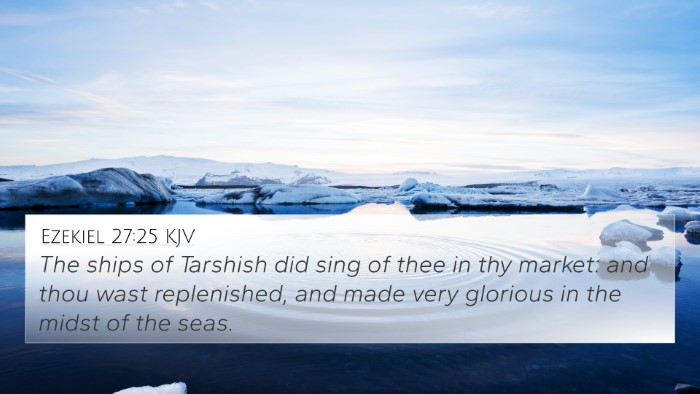Understanding Isaiah 23:15
Isaiah 23:15 states:
"And it shall come to pass in that day, that Tyre shall be forgotten seventy years, according to the days of one king: after the end of seventy years shall Tyre sing as a harlot."
Summary of Meaning
This verse is a prophetic declaration concerning the city of Tyre, symbolizing the judgment and subsequent restoration that God has in store for the nations. The seventy years mentioned signifies a period of judgment followed by a transformation, indicated by the metaphor of a harlot, suggesting a return to her former ways after a period of desolation.
Contextual Analysis
Isaiah's prophecies often highlight themes of judgment and redemption. This verse fits into the broader narrative of God's sovereignty over the nations and His ultimate purpose in restoration.
Cross-References to Isaiah 23:15
- Jeremiah 25:11 - speaks of Babylon’s duration of dominance.
- Ezekiel 26:12 - discusses the destruction of Tyre and the spoils taken.
- Amos 1:9-10 - details God's judgment on Tyre for their transgressions.
- Revelation 18:17 - refers to the judgment of commercial Babylon, reminiscent of Tyre.
- Isaiah 14:31 - speaks of lamentation and despair for a city like Tyre.
- Zechariah 9:2-4 - prophesies about the destruction of Tyre and its restoration.
- Isaiah 13:1-22 - discusses the fate of nations with a similar tone of judgment.
Thematic Connections
The themes within Isaiah 23:15 reflect broader Biblical concepts, including:
- Judgment and Restoration - Central to God's message throughout Scripture.
- The Sovereignty of God - Over nations and the course of history.
- Repentance and Return - Tyre's harlotry represents a turning away from God, which will lead to judgment but may be restored through repentance.
Commentary Insights
Matthew Henry
Matthew Henry emphasizes the certainty of the prophecy, indicating that Tyre's desolation is a warning to other cities to consider their ways. He views the "harlot" imagery as an indication of unfaithfulness to God, highlighting how nations can turn from their God-given purposes due to pride and sin.
Albert Barnes
Barnes elaborates on the seventy years as a distinct period of judgement which corresponds to the Babylonians’ occupation, signifying God's discipline. He interprets the phrase "shall sing as a harlot" to mean that Tyre will once again engage in commerce and embellish herself with wealth, depicting a return to worldly pursuits.
Adam Clarke
Clarke offers a perspective on the historical context of Tyre, known for its wealth and commerce. He connects the timeline to historical events, suggesting the prophecy reflects God’s dealings with nations that oppose Him. Clarke underscores the cyclical nature of sin and judgment, emphasizing the need for nations and individuals to recognize the sovereignty of God.
Inter-Biblical Dialogue
Isaiah 23:15 can be connected to multiple other instances within scripture, creating an inter-Biblical dialogue about God's nature and His patterns of dealing with nations:
- Isaiah 10:24-25 - God’s purpose in the Assyrian judgment.
- Isaiah 24:4-6 - the earth languishing due to human sin.
- Jeremiah 29:10 - another reference to a determined period of captivity.
Tools for Future Study
Utilizing Bible concordances, Bible cross-reference guides, and other Bible reference resources can greatly enhance understanding and aid in cross-referencing Biblical texts effectively. These tools allow for a comparative Bible verse analysis that reveals deeper thematic connections.
Final Thoughts
Isaiah 23:15 serves as a powerful reminder of God’s governance over nations, His standards of holiness, and the cyclical nature of judgment and redemption. Through these scriptures, believers are encouraged to reflect on their faithfulness to God and the ways they might engage in the ongoing narrative of repentance and restoration.
